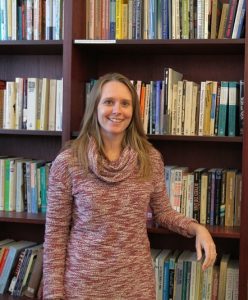
UF Research Computing may be home to HiPerGator, but its staff do much more than manage the university’s supercomputer.
The department was recently contacted by Amanda Edgell, a Ph.D. candidate in Comparative Politics in the Department of Political Science. Edgell needed to analyze two decades’ worth of daily legislative transcripts from Uganda and Kenya. UFIT Research Computing specialist Alex Moskalenko wrote a program to clean up and reformat the transcripts, after a careful analysis of the text and internal structure of the documents so they could be ingested into analytical software Edgell wanted to use. The Ph.D candidate is extremely appreciative for the computational support she received:
“My dissertation project explores legislative behavior in Uganda and Kenya, and is based on approximately 4,000 individual documents,” Edgell noted. “The MaxQDA application streamlines qualitative and quantitative text analysis. But to convert a transcript into a dataset of coded segments, documents have to be structured following a certain pattern. I needed assistance cleaning up the transcripts to match the software requirements and reached out to UFIT for help. Alex was able to quickly develop a script to contend with the document cleaning. Thanks to him, something that would have taken months to do manually was completed in just a few hours.”
The academic and research community may email support@rc.ufl.edu to receive assistance from one of UFIT’s computational resource or software applications experts.
Powered by WPeMatico
